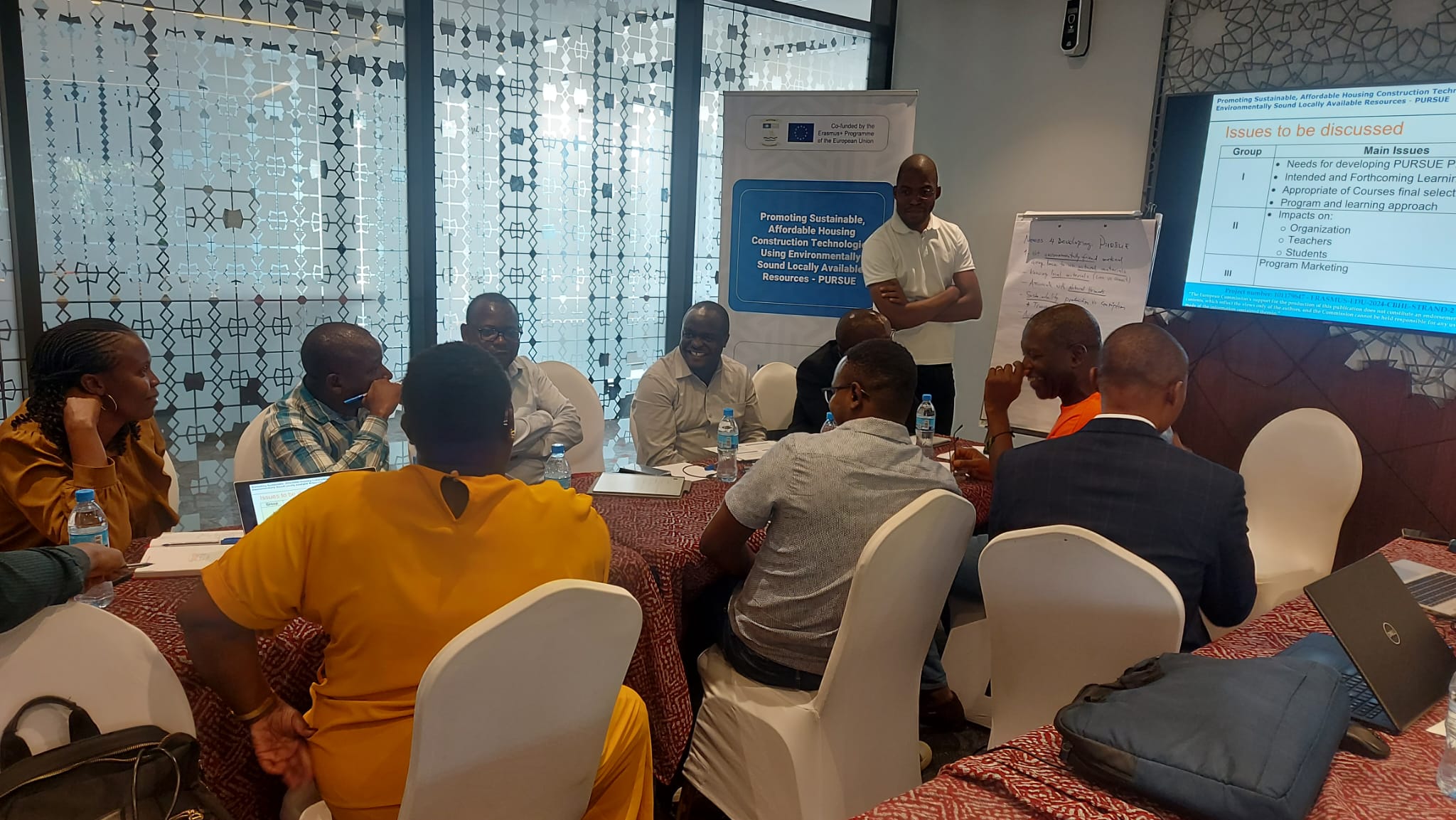
On February 20, 2025, the PURSUE project held a pivotal Stakeholder Engagement Meeting at the Dar es Salaam Institute of Technology (DIT) in Tanzania. This event represented a significant advancement in fostering cooperation among academic institutions, professionals, and local stakeholders, all committed to promoting sustainable and affordable housing technologies across Sub-Saharan Africa.
Meeting Objective
The primary aim of the meeting was to present the PURSUE project’s vision, objectives, and planned activities to a wide array of local stakeholders in Tanzania. The session also served as a platform to gather valuable input that will help guide curriculum development and implementation strategies aligned with regional priorities and challenges.
The meeting was officially opened by Prof. Samir Afifi of Sakarya University, the coordinating institution of the project. Prof. Afifi delivered a comprehensive overview of the project’s mission, highlighting its commitment to enhancing higher education capacity while advancing the use of environmentally friendly, locally sourced construction materials.
Stakeholder Participation
The meeting saw the active engagement of a diverse group of stakeholders, including:
- Representatives from Tanzanian universities and engineering faculties
- Public authorities in the housing, infrastructure, and education sectors
- Local and international non-governmental organizations (NGOs)
- Private-sector actors from the construction and engineering industries
- Embassy officials and donor organizations
- Community leaders and professional associations
Program Highlights
The day’s program featured several key presentations and interactive sessions:
- Project Overview: Introduction to the PURSUE project’s goals, expected outcomes, timeline, and work packages
- Contextual Challenges: Discussions on national housing issues and gaps in technical education
- Curriculum Workshop: Collaborative session on integrating sustainable construction methods into academic programs
- Stakeholder Input: A dedicated forum for feedback on curriculum design, engagement strategies, and sustainability considerations
Key Outcomes and Stakeholder Feedback
Feedback from participants was both constructive and encouraging. The relevance of the PURSUE initiative was underscored, particularly given the pressing challenges of climate adaptation, rapid urbanization, and housing inequality in the region.
Key recommendations included:
- Strengthening hands-on training components in laboratory and field environments
- Aligning project outputs with national development strategies
- Engaging local construction firms in pilot project implementation
- Promoting gender inclusivity in training and participation opportunities
The meeting concluded with a mutual commitment to continued engagement and collaboration throughout the duration of the project.
Next Steps
In the coming months, the PURSUE consortium will:
- Incorporate stakeholder feedback into the ongoing work under WP2 (Curriculum Development) and WP3 (Laboratory Capacity Enrichment)
- Expand stakeholder involvement across other partner countries
- Prepare communication materials and policy briefs informed by local input
The PURSUE team extends its sincere appreciation to Dar es Salaam Institute of Technology (DIT) for hosting the meeting, and to all stakeholders for their active contributions. This collaborative effort will be instrumental in ensuring the project’s long-term relevance, impact, and sustainability.
